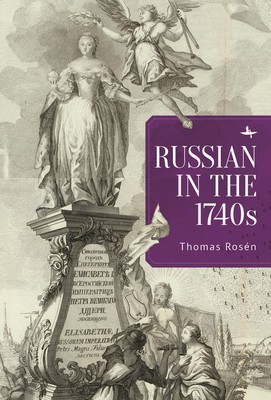
- We will send in 10–14 business days.
- Author: Thomas Rosén
- Publisher: Academic Studies Press
- Year: 2022
- Pages: 212
- ISBN-10: 164469414X
- ISBN-13: 9781644694145
- Format: 17.8 x 25.4 x 1.3 cm, hardcover
- Language: English
- SAVE -10% with code: EXTRA
Reviews
Description
During the 1740s, literate Russians mostly kept to traditional forms of written language. Although the linguistic reforms undertaken by Peter the Great earlier in the century affected printed secular texts and the imperial administration, these reforms were less radical than often assumed. This study draws conclusions based on an analysis that differs from earlier ones. First of all, the study examines the Russian language during a comparatively little-known decade of the eighteenth century. In doing so, it takes into account not only strictly linguistic data, but also developments in Russian society. Second, the investigation analyzes sources that are seldom valued for their linguistic content, thus offering a broader perspective on the Russian language of the period.
EXTRA 10 % discount with code: EXTRA
The promotion ends in 17d.21:42:06
The discount code is valid when purchasing from 10 €. Discounts do not stack.
- Author: Thomas Rosén
- Publisher: Academic Studies Press
- Year: 2022
- Pages: 212
- ISBN-10: 164469414X
- ISBN-13: 9781644694145
- Format: 17.8 x 25.4 x 1.3 cm, hardcover
- Language: English English
During the 1740s, literate Russians mostly kept to traditional forms of written language. Although the linguistic reforms undertaken by Peter the Great earlier in the century affected printed secular texts and the imperial administration, these reforms were less radical than often assumed. This study draws conclusions based on an analysis that differs from earlier ones. First of all, the study examines the Russian language during a comparatively little-known decade of the eighteenth century. In doing so, it takes into account not only strictly linguistic data, but also developments in Russian society. Second, the investigation analyzes sources that are seldom valued for their linguistic content, thus offering a broader perspective on the Russian language of the period.


Reviews